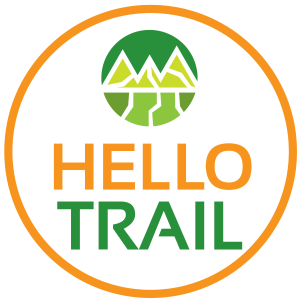Discover the 10 best hikes near Estes Park with waterfall views like Alberta Falls and Horseshoe Falls to name a couple. Estes Park, CO is a mountain lover’s haven, serving as the gateway to Rocky Mountain National Park (RMNP).
When Andrew and I lived in Littleton, Colorado, the 90 minute drive to Estes Park and RMNP was a welcomed break from the craziness around Denver.
Although Estes Park is flocked by tourists during the summer months, you can easily escape into the wilderness and find peace amongst the trees and plentiful wildlife in the over 350 miles of hiking routes within Colorado’s Front Range.
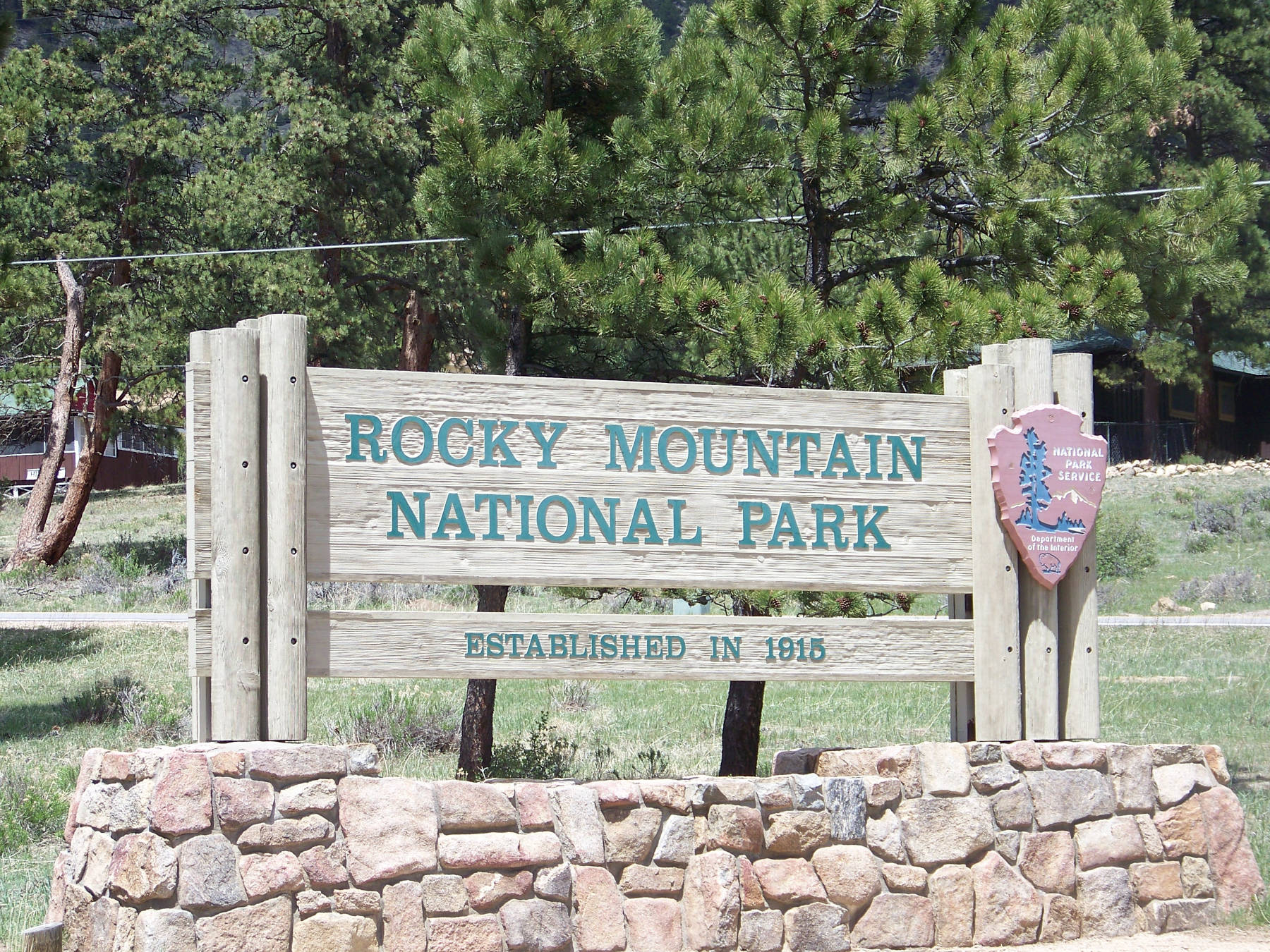
Below is a table giving you the quick information about each hike. We have sorted the list by Easy, Moderate, and Difficult ratings. Keep in mind that easy for some may be moderate or difficult for others. So please always know your own limits!
You will want to keep reading though, because we have some great tips to help you enjoy these Estes Park trails along with more detailed descriptions of all ten.
| Trail | Difficulty | Distance |
|---|---|---|
| Alberta Falls | Easy | 1.6 miles (2.6 km) |
| Horseshoe Falls | Easy | 0.4 miles (0.6 km) |
| Moraine Park Loop | Easy | 5.5 miles (8.9 km) |
| The Pool | Easy | 3.4 miles (5.5 km) |
| Granite Falls | Moderate | 10.2 miles (16.4 km) |
| Lake Haiyaha | Moderate | 4.2 miles (6.8 km) |
| Black Lake | Difficult | 10 miles (16.1 km) |
| Flattop Mountain | Difficult | 8.8 miles (14.2 km) |
| Sky Pond | Difficult | 8.4 miles (13.5 km) |
| Falcon Falls | Very Difficult | 16 miles (25.7 km) |
Tips for Hiking in Rocky Mountain National Park (RMNP)
- Rocky Mountain National Park is a high elevation hiking destination. Be prepared to acclimate before your visit and familiarize yourself with the symptoms of altitude sickness, which can include headache, nausea, and dizziness. Be sure to stay hydrated and carry plenty of water with you.
- RMNP is home to a large population of black bears. While spotting a bear is a thrilling and photo-worthy opportunity, it’s important to demonstrate proper behavior for your safety and theirs. If a bear approaches you, the best thing to do is stop and do not run. Make loud noises such as clapping or shouting and back away slowly. It is also a good idea to carry bear spray.
- It’s best to wear sunscreen and reapply during your hike. Because of the park’s high elevation, you’re closer to the sun and more exposed to the harmful effects of UV rays.
- Be sure to check the weather forecast before you set out on a hike. Colorado is prone to afternoon lightning storms, especially in summer, so start your hike early in the day and get back down below the treeline before the afternoon. If you get caught in a lightning storm, seek shelter, avoid summits, lone trees and rocks, get away from water, and drop metal objects.
- Ticks are another concern, especially in spring and early summer. Ticks can carry serious diseases, including Rocky Mountain Spotted Fever. If you come into contact with a tick, remove the tick and thoroughly clean the site. You should see a doctor if lesions or a rash forms around the site or strange symptoms occur.
4 Easy Hikes Around Estes Park
1. Alberta Falls Trail
Difficulty: Easy
Distance: 1.6 miles
Time: Approximately 1 hour
Trail Type: Out and back
Where to Start: Glacier Gorge Junction Trailhead (40.31039, -105.64145)
Most of the hiking near Estes Park takes place on the eastern edge of Rocky Mountain National Park and the Alberta Falls Trail is one of our favorites!
If you’re a fan of waterfalls and looking for an easy hike or a warm-up, Alberta Falls is a great choice.
This family-friendly trek launches from the Glacier Gorge Junction trailhead and offers sweeping views of the surrounding peaks in addition to stunning waterfalls.
The elevation gain is about 250 feet, making this an easy trail suitable for hikers of all abilities.
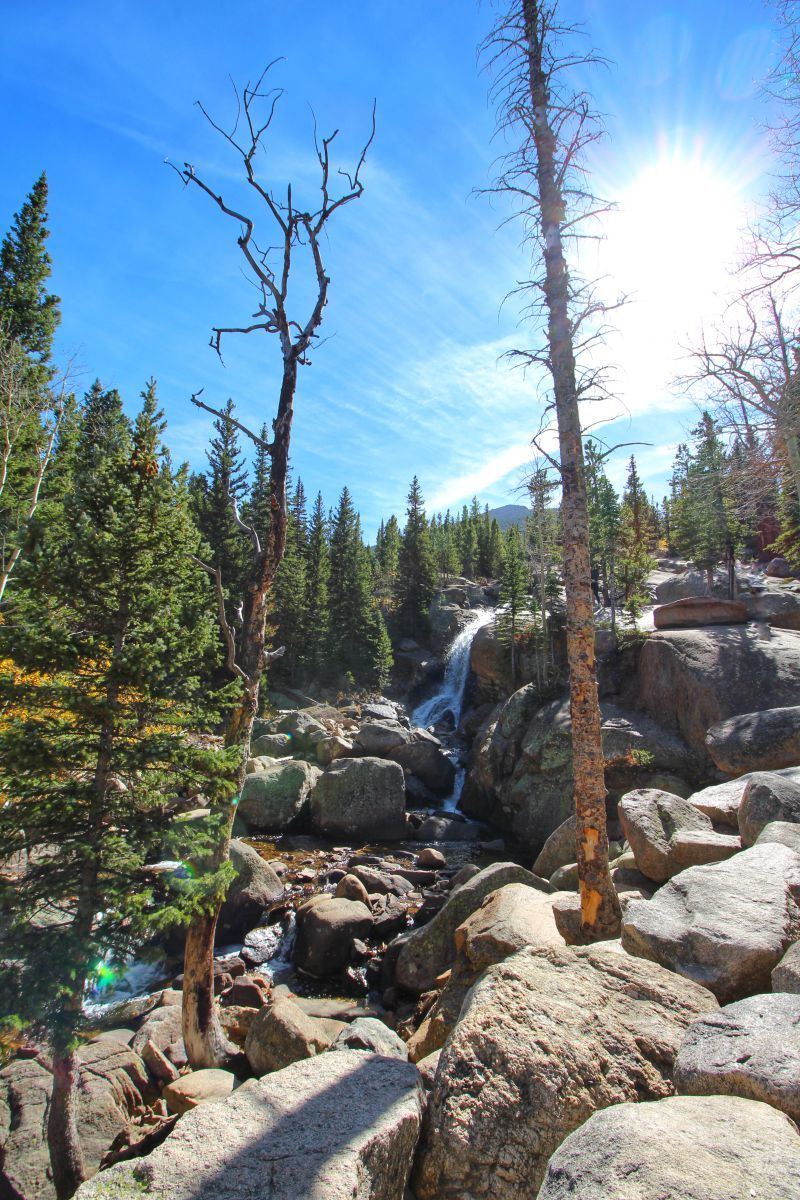
If you want to extend your hike, go the entire 2.8 miles into the impressive Mills Lake inside Glacier Gorge.
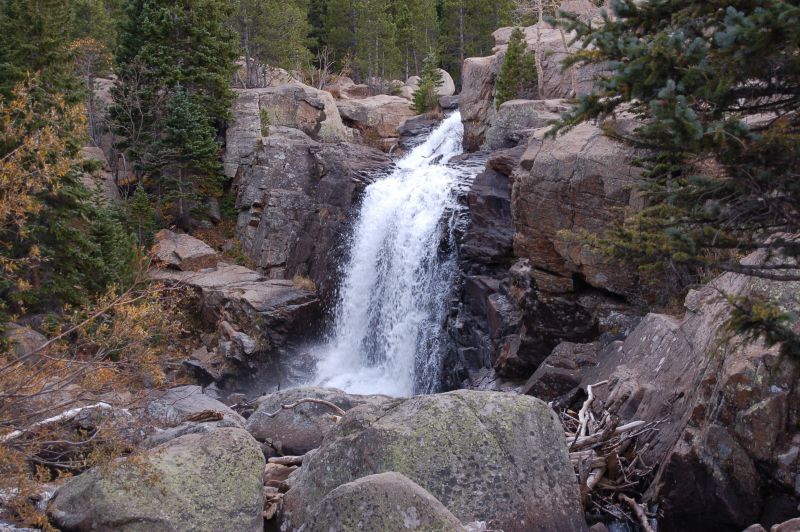
2. Horseshoe Falls Hiking Trail
Difficulty: Easy
Distance: 0.4 miles
Time: Approximately less than 1 hour
Trail Type: Out and back
Where to Start: Alluvial Fan Trailhead (40.41016, -105.63256)
If you’re looking for an easy, family-friendly hike near Estes Park, Horseshoe Falls is a solid option. The falls can be viewed from the roadside, but it’s much more rewarding to stroll the short distance from the Alluvial Fan Trailhead.
Take the Fall River Road to Old Fall River Road and access the East Alluvial Fan Trailhead about a half-mile up Old Fall River Road.
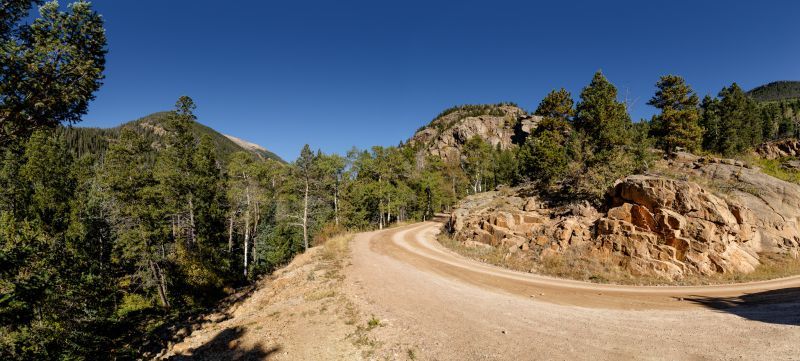
The trail has experienced past flooding incidents, so it’s recommended to navigate the terrain with caution and don’t forget your emergency first-aid kit. Horseshoe Falls is a lovely cascading waterfall that twists and turns down the rocky landscape.
The trail is relatively flat, including little more than one hundred feet in elevation gain, making Horseshoe Falls Trail suitable for most hikers unlike the 1300+ ft. gain hiking to Bridal Veil Falls in Telluride, CO.
3. Moraine Park Loop
Difficulty: Easy
Distance: 5.5 miles
Time: Approximately 3 hours
Trail Type: Loop
Where to Start: Moraine Park Discovery Center (40.35850, -105.58368)
The Moraine Park Loop is one of the most popular Estes Park hiking trails. The trek takes you on a relatively flat journey around Moraine Park, which serves as a prime spot for wildlife.
If you’re looking to see elk during your visit, this hike grants you the perfect opportunity.
Moraine Park is an example of where a glacier once settled and then receded, leaving a broad, level plain in its wake. Both the Big Thompson River and Cub Creek intersect this area.
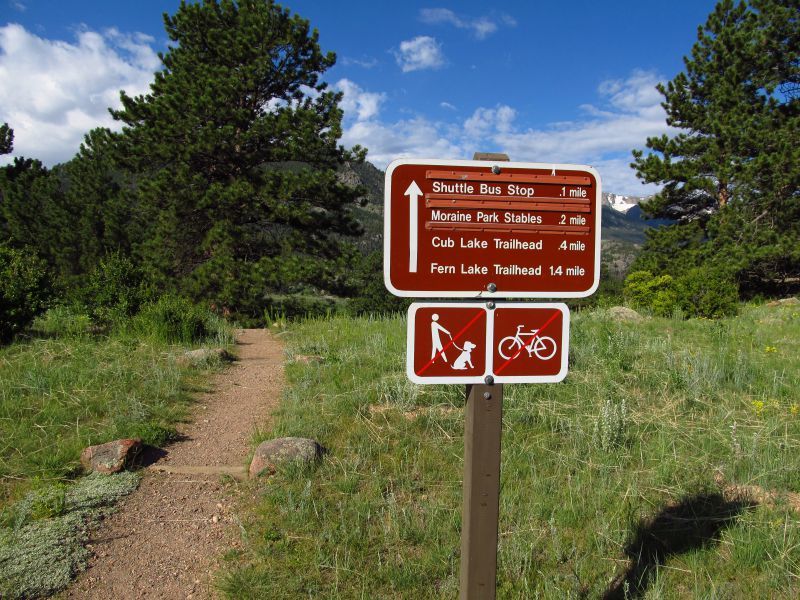
From the Moraine Park Trailhead, you’ll follow a path to Cub Lake Road, which leads to the Cub Lake Trailhead. Bear left on Cub Lake Trail which then reaches the Lateral Moraine Trail Split.
Keep left until you merge with a Park Service Road that will take you back to the trailhead.
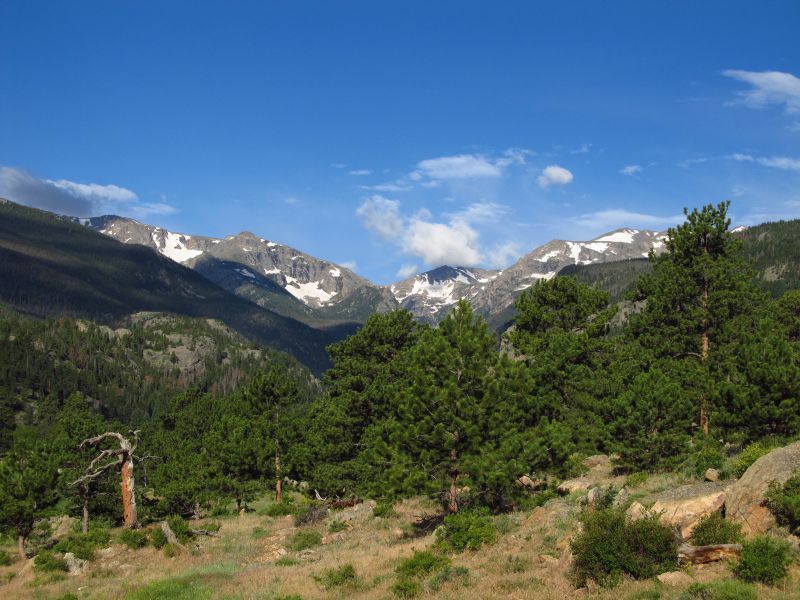
4. The Pool Hiking Trail
Difficulty: Easy
Distance: 3.4 miles
Time: Approximately 2 hours
Trail Type: Out and back
Where to Start: Fern Lake Trailhead (40.35514, -105.63120)
The Pool trail is one of the easier Rocky Mountain National Park hikes with magnificent water views. Although the name might be deceiving, The Pool hike does not lead to a popular swimming area.
Quite the opposite, the Pool comprises swirling cascades that have etched a deep pool of fast-moving currents of water.
There are plenty of points of interest along the Fern Creek Trail leading to the Pool, including Arch Rocks and the Windy Gulch Cascades.
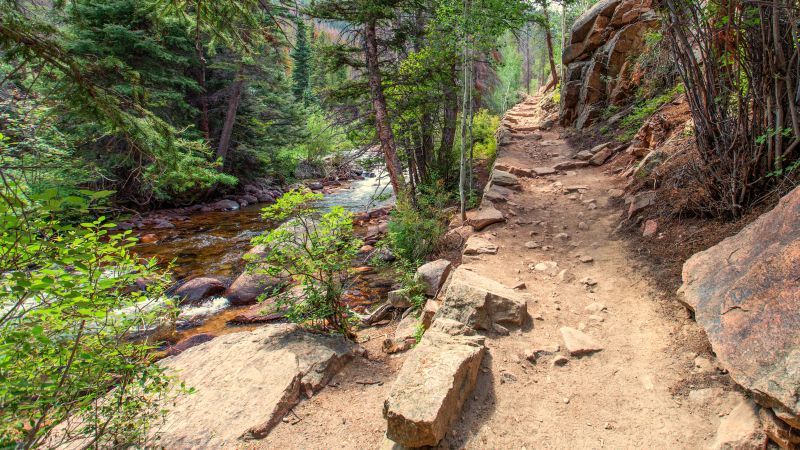
There are also plenty of places to stop and fish along the banks of the Big Thompson River. The elevation gain is minimal – so enjoy this gently undulating stroll through the wilderness to the treasures at its end.
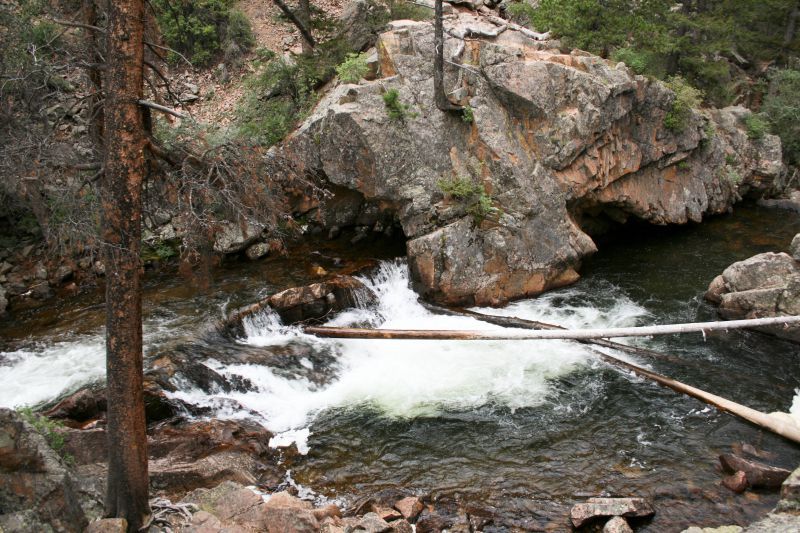
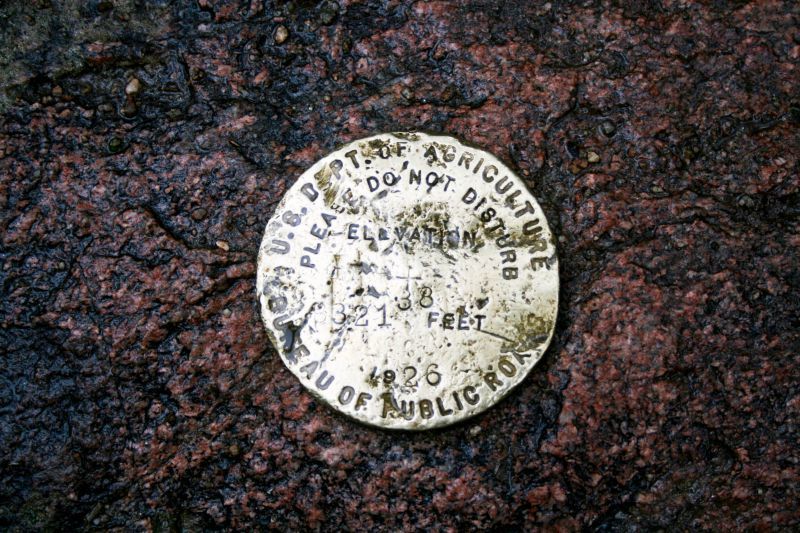
Two Moderate Estes Park Hikes
5. Granite Falls Trail
Difficulty: Moderate
Distance: 10.2 miles
Time: Approximately 5-7 hours
Trail Type: Out and back
Where to Start: Green Mountain Trailhead (40.30765, -105.84126)
Granite Falls trail, one of the best hikes in Rocky Mountain National Park, offers everything you could want including forests, meadows, and creeksides. Your journey will take you through Big Meadows, which, when in season, offers splendid views of wildflowers.
Although you’ll cover plenty of miles, the elevation gain is only about 1,000 feet, so this is an ideal trek to evaluate your fitness level and could serve as a warm-up for more strenuous hikes in the park.
When you reach Granite Falls, you’ll experience the waters of Tonahutu Creek cascading fifty feet down a landscape of granite slabs.
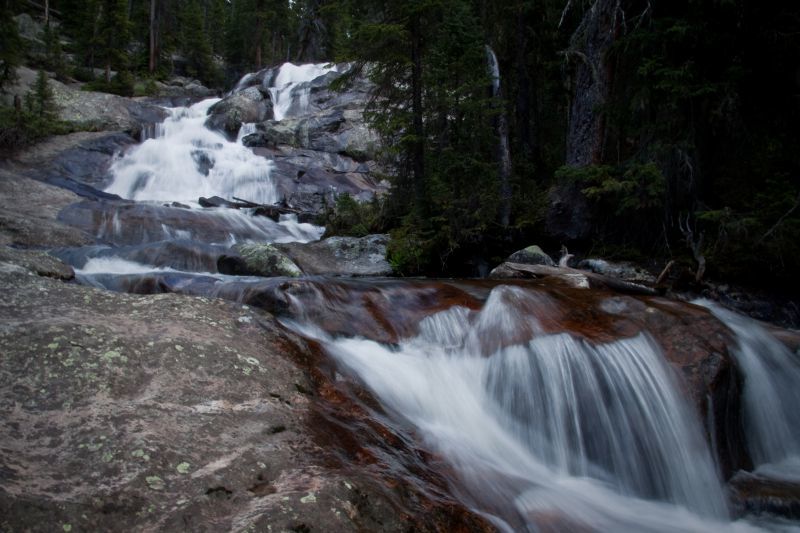
6. Lake Haiyaha Trail
Difficulty: Moderate
Distance: 4.2 miles
Time: Approximately 2-3 hours
Trail Type: Out and back
Where to Start: Bear Lake Trailhead (40.3125, -105.64589)
If you’re looking to escape the crowds, head out towards Lake Haiyaha, located in a sprawling valley within RMNP. Don’t forget that National Parks do not allow pets but you can still find dog-friendly hikes in Colorado.
This moderate trek provides some fantastic views, including Nymph Lake, Dream Lake, and then on to Lake Haiyaha.
Be prepared for switchbacks through spruce and fir forests and be aware of possible boulder scrambling as you approach the final lake.
Like other trails in the area, the trail routing to Lake Haiyaha begins on the way to Bear Lake but requires veering off to your left at the trailhead sign.
You’ll gain less than 1,000 feet in elevation, so it shouldn’t be very strenuous in that aspect.
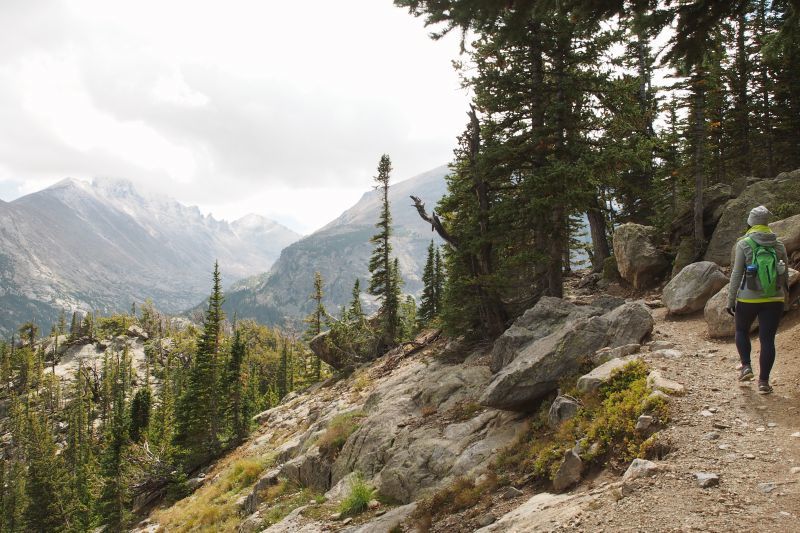
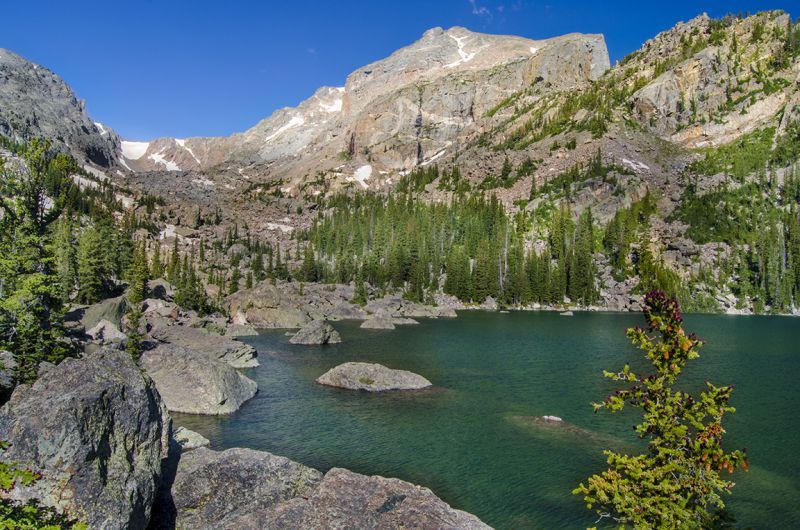
4 Difficult Hikes in Estes Park
7. Black Lake Hiking Trail
Difficulty: Difficult
Distance: 10 miles
Time: Approximately 6 hours
Trail Type: Out and back
Where to Start: Either Bear Lake Trailhead (40.3123, -105.6477) or Glacier Gorge Junction Trailhead (40.31039, -105.64145)
The Black Lake trail is strenuous hike in Rocky Mountain National Park that offers some of the most scenic views.
An extension of the hike to Alberta Falls, the Black Lake trail winds through the Glacier Gorge Trail System offering spectacular sights of Mills Lake, Jewel Lake, and Ribbon Falls.
After you reach Alberta Falls, the trail comes to a junction. Follow the Glacier Gorge/Loch Vale trail that bears right until you reach another junction at which point the leftmost route takes you to Mills Lake and onwards to Black Lake.
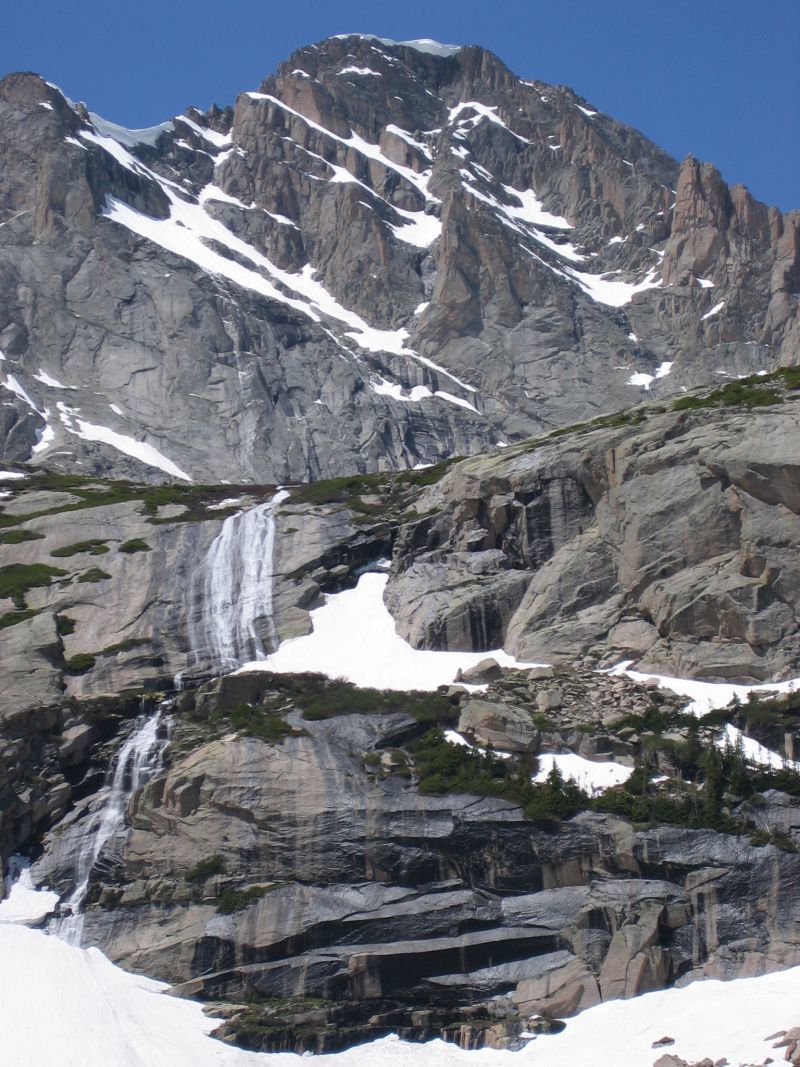
The Black Lake trail is a challenging hike that poses about a 1,430-foot elevation gain.
8. Flattop Mountain Trail
Difficulty: Difficult
Distance: 8.8 miles
Time: Approximately 6 hours
Trail Type: Out and back
Where to Start: Bear Lake Trailhead (40.3125, -105.64589)
*Note: If the parking at the Bear Lake trailhead is full, you can park at the Bierstadt trailhead and ride the bus to Bear Lake.
The hike to Flattop Mountain provides some of the most exquisite panoramic views of Rocky Mountain National Park. This difficult hiking trail is heavily trafficked – and for a good reason.
The hike winds through a varied alpine landscape, gaining nearly 3,000 feet in elevation. You start at the Bear Lake Trailhead and wind through an aspen forest until the Flattop Mountain Trail takes you up through a series of switchbacks.
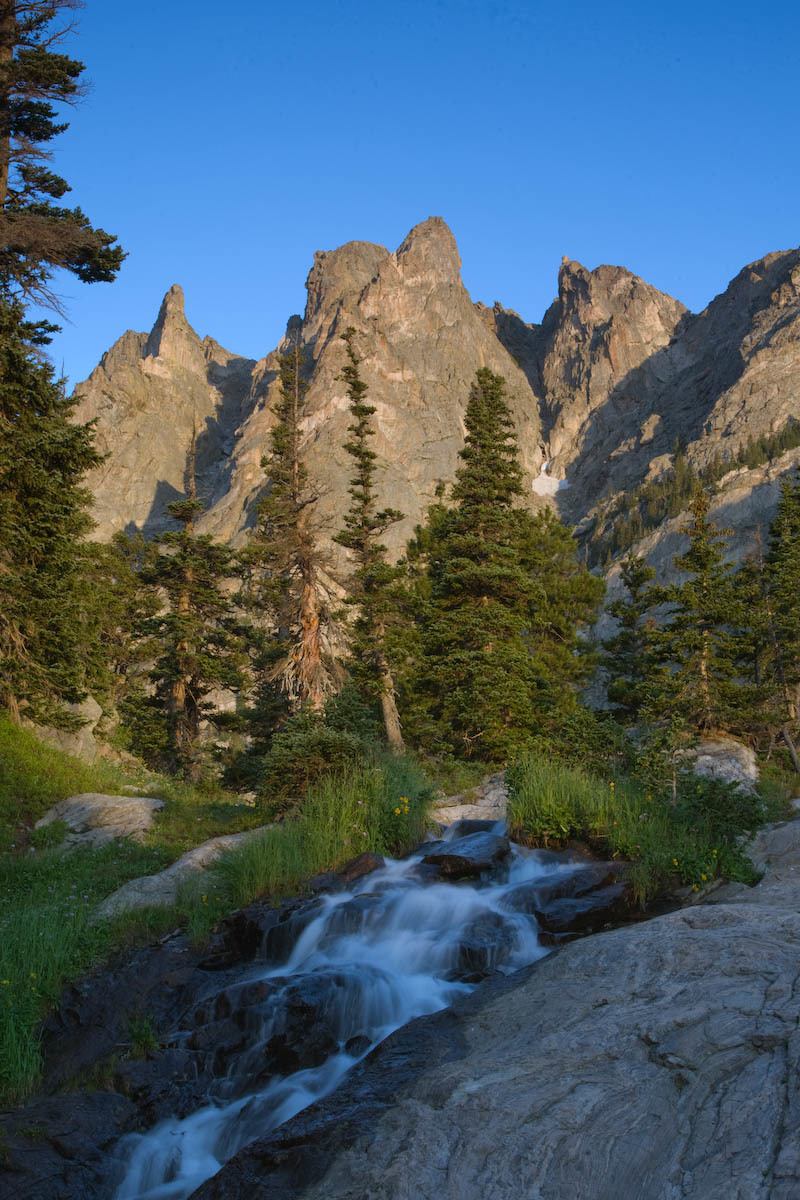
Be sure to stop at the Dream Overlook for photo-worthy views of Hallett Peak and Longs Peak. Next, the trail will take you on a mesmerizing journey through the Krummholz forest to the tundra above the treeline and finally to Flattop Mountain.
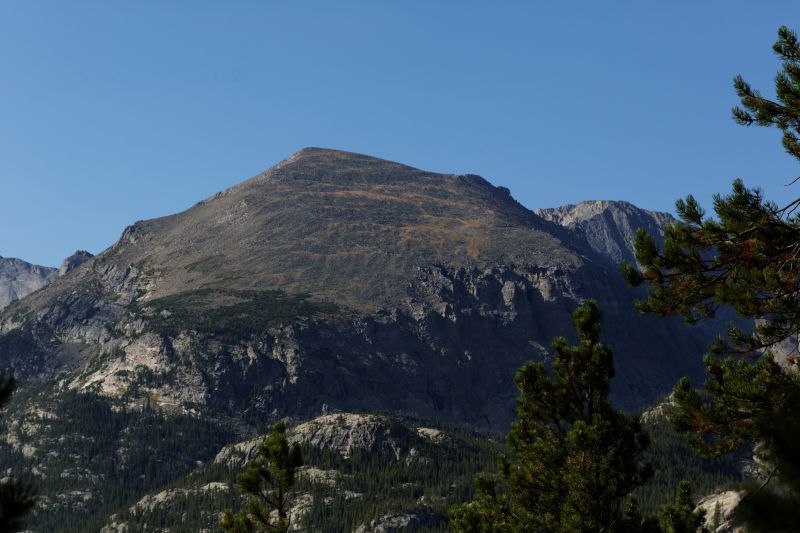

9. Sky Pond Trail
Difficulty: Difficult
Distance: 8.4 miles
Time: Approximately 5-6 hours
Trail Type: Out and back
Where to Start: Bear Lake Trailhead (40.3123, -105.6477) or Glacier Gorge Junction Trailhead (40.31039, -105.64145)
The Sky Pond hike, like many of the RMNP trails on this list, starts at the Bear Lake trailhead and passes Alberta Falls. The Sky Pond trail takes you up into high mountain scenery, offering views of three prominent peaks – Petit Grepon, the Sabre, and Sharkstooth.
Follow the Glacier Gorge/Loch Vale trail up to Timberline Falls. To reach the Lake of Glass and Sky Pond beyond this point involves slightly technical scrambling up the right side of a waterfall – so wear proper hiking boots with plenty of traction.
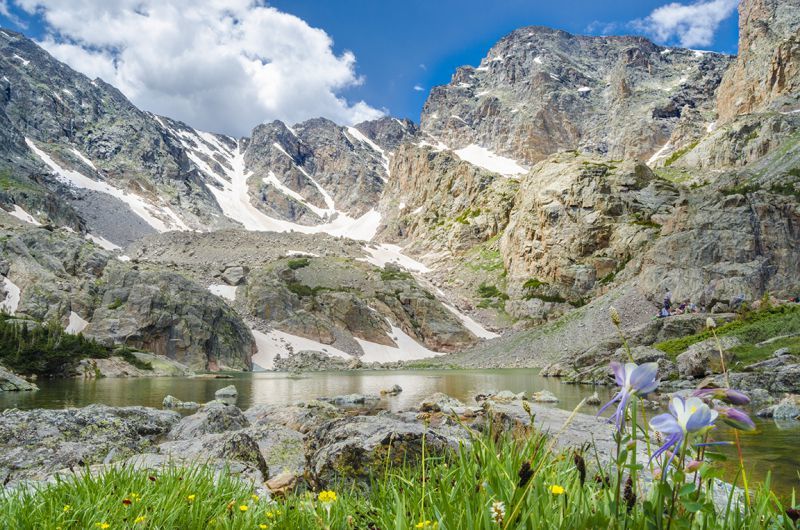
The Lake of Glass is just a quarter-mile beyond Timberline Falls. Then another quarter mile leads to Sky Pond – your final destination where you can enjoy stunning views of alpine scenery, including fields of columbines and marsh marigolds.
The elevation gain is more than 1,500 feet.
If you are looking for more mountain lakes to explore then check out the hiking trails near Aspen, Colorado after your RMNP excursions are complete.
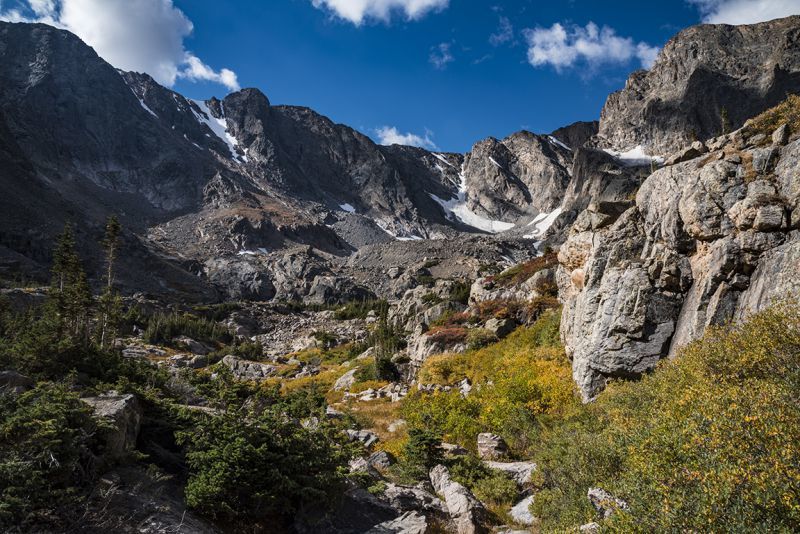
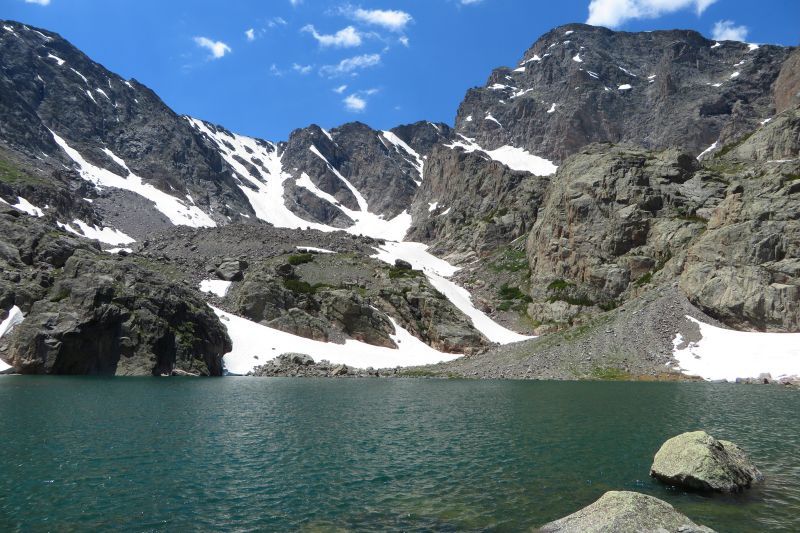
10. Hike to Falcon Falls
Difficulty: Very Difficult
Distance: 15.5-16.5 miles
Time: Approximately 8-11 hours
Trail Type: Out and back
Where to Start: Wild Basin Trailhead (40.20842, -105.56652)
If you want to check out the Rocky Mountain National Park backcountry consider hiking to Falcon Falls.
The hike to Falcon Falls is quite the adventure so make sure you’re fit, acclimated, and have some backcountry navigational skills. I would still play it safe and bring along your favorite GPS device.
Situated in a remote part of the Wild Basin, Falcon Falls is one of two waterfalls that pour down from Thunder Lake. The Falcon Falls hike is a demanding, all-day journey that requires an early start – but the views are worth the effort.
Falcon Falls isn’t the only body of water you’ll encounter along your journey – the trail winds past Thunder Lake, Fan Falls, Copeland Falls, the Calypso Cascades, and Ouzel Falls.
Because of the difficulty and length of the journey, many people make this a multi-day excursion.
How to Get to Estes Park
One of the best things about the Estes Park area is that it’s easy to get there — no matter the season.
From cities east of the Rockies – Loveland, Fort Collins, Greeley, Longmont, Boulder and Denver, there are no mountain passes to cross and highways that serve the area are well maintained.
The town is just ninety minutes from Denver via car. You can ride the Estes Park Shuttle routing from the Denver International Airport straight into town if you don’t have a car.
Denver International Airport is the closest international aviation hub — serving daily flights from major U.S. cities and worldwide.
From the Denver International Airport, you will exit onto Pena Boulevard and take toll road E-470 northwest to I-25. Exit on CO 66 west towards Estes Park. From Lyons, CO you will take Highway 36.
If you want to avoid the toll road, alternate routes follow I-70 to I-270 then route to Highway 36, although they will add a little bit of time to your drive.
If you have a car, Trail Ridge Road is the most picturesque drive in the area — a highly recommended rest day activity. The road covers the 48 miles between Estes Park and Grand Lake, winding up to a staggering elevation of 12,183 feet.
The trail ridge tundra offers epic views above the treeline and the opportunity for passersby to experience wildlife just outside their vehicles, including pikas, marmots, ptarmigans and bighorn sheep.
Wrapping It Up…
Rocky Mountain National Park attracts tourists and outdoor enthusiasts from all over the world — so expect some crowds. Rest assured you’ll be able to find tranquility in the wilderness.
There is plenty of camping in the area if that is your cup of tea but you won’t be hard pressed to find other accommodations, either.
The hikes near Estes Park present a rewarding experience that trumps much of the other trails in Colorado. So think of it like striking gold.
Our only advice? Be prepared for the elevation and remember to leave no trace.
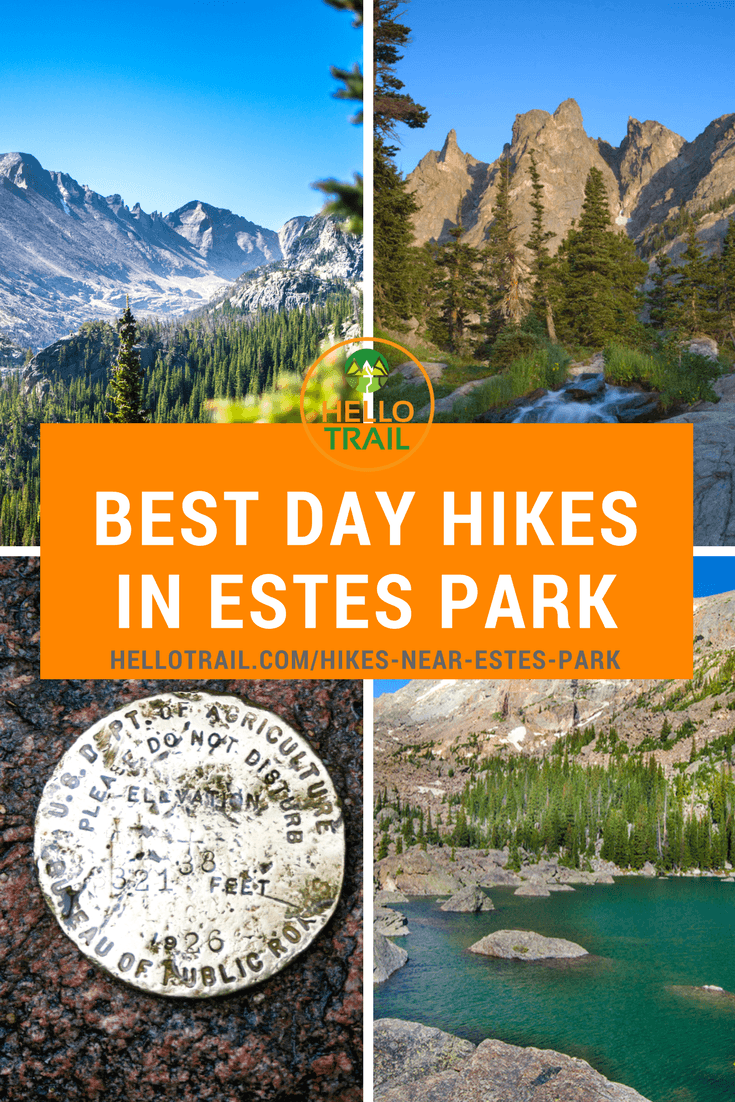
View our Google Web Story – 7 Spectacular Hikes in Rocky Mountain National Park
